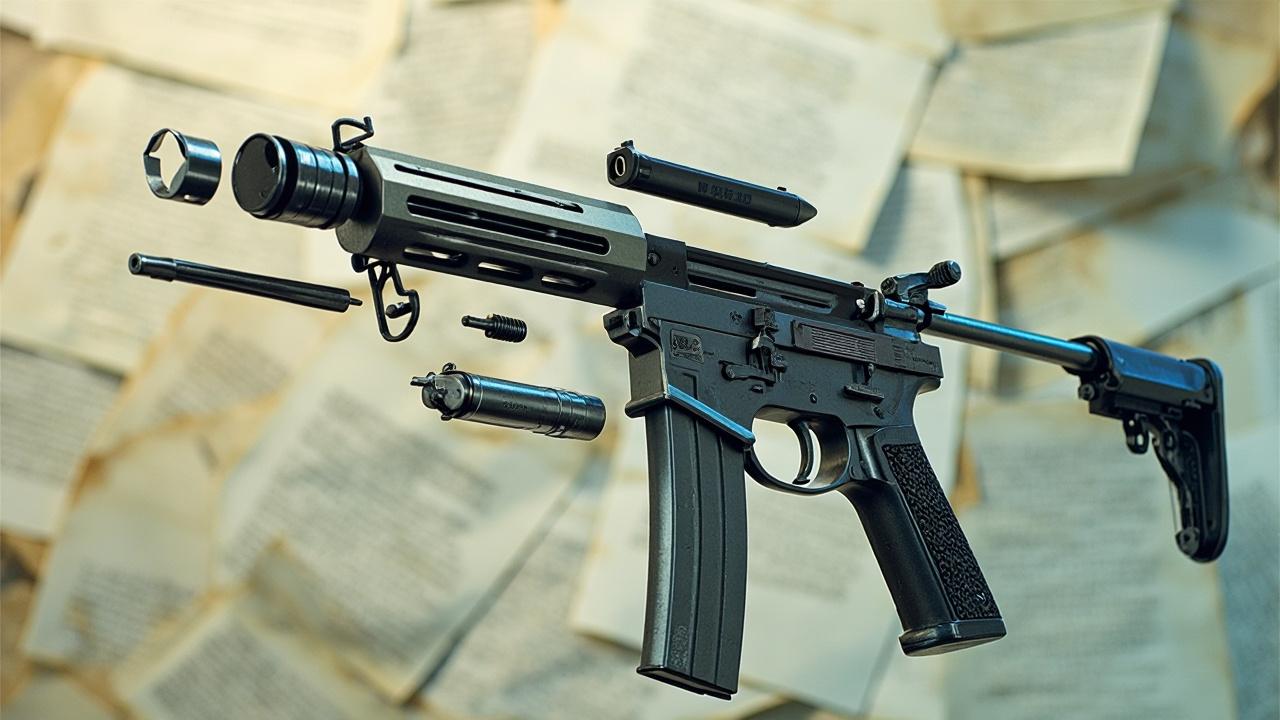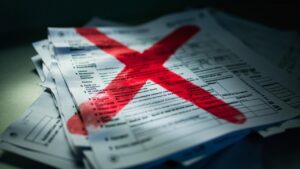Introduction
Facing firearm charges Los Angeles can be a daunting experience, especially given California’s reputation for having some of the most stringent gun control laws in the nation. The state’s complex web of regulations often leaves individuals vulnerable to severe legal repercussions, even for seemingly minor infractions.
One might recall the case of a law-abiding citizen who unknowingly transported a firearm across state lines, only to face serious felony charges due to California’s unique definition of an “assault weapon,” highlighting the critical need for understanding the state’s specific regulations.
This blog post aims to serve as a comprehensive guide through the labyrinthine world of California firearm laws, specifically as they apply to Los Angeles. We will delve into the specifics of what constitutes an illegal firearm, the requirements for legal ownership and concealed carry, and the potential penalties for various firearm-related offenses. Our goal is to provide clarity and empower you with the knowledge necessary to navigate this complex legal landscape.
Whether you are a gun owner, a recreational shooter, or simply someone who wants to understand the laws, this information is crucial. We will explore the various types of firearm charges one might encounter in Los Angeles, from unlawful possession to assault with a deadly weapon, and the potential defenses available. Understanding these laws is the first step in protecting your rights and future.
California’s Assault Weapon Ban
California’s strict gun control laws are particularly evident in its assault weapon ban, which sets forth a complex and often misunderstood definition of what constitutes an “assault weapon.” This definition goes far beyond common perceptions and can ensnare individuals who unknowingly possess firearms deemed illegal under California law. Understanding these regulations is crucial for responsible gun ownership and avoiding potential criminal prosecution.
Defining “Assault Weapon” in California
California law defines “assault weapons” in several ways, focusing primarily on specific makes and models as well as characteristics and features. The Roberti-Roos Assault Weapons Control Act of 1989 (AWCA) specifically names certain firearms, such as specific AR-15 and AK-47 variants, as prohibited. However, the definition also extends to firearms that have certain features, regardless of the specific model. These features can include:
Furthermore, the law considers rifles with detachable magazines and any one of the features listed above to be assault weapons. It’s important to note that even seemingly minor modifications to a firearm can transform it into an illegal assault weapon under California law. The intricacies of the law can make it challenging to determine whether a particular firearm is compliant. This complexity often leads to confusion and unintentional violations, which can then lead to firearm charges los angeles.
The Consequences of Possessing an Assault Weapon
Possessing, selling, manufacturing, or transporting assault weapons in California is a serious offense. Violations can result in felony charges, carrying significant penalties, including imprisonment and substantial fines. The penalties for violating California’s assault weapon ban can be severe, reflecting the state’s strong stance on gun control.
Moreover, individuals convicted of these offenses face a lifetime ban on owning firearms. Given the severity of these consequences, it is essential for gun owners in California to be thoroughly familiar with the state’s assault weapon laws and to ensure that their firearms comply with all applicable regulations.
A misunderstanding of the law is not a valid defense, so it’s crucial to err on the side of caution and seek legal counsel if you have any doubts about the legality of your firearm.
Permitting and Registration Requirements
California’s strict gun control extends beyond mere possession; it encompasses a complex web of permitting and registration requirements that can easily ensnare unsuspecting individuals. To legally purchase a firearm, California mandates background checks conducted through the Dealer’s Record of Sale (DROS) system, administered by the California Department of Justice (DOJ).
Aspiring gun owners must also possess a Firearm Safety Certificate (FSC), demonstrating their knowledge of firearm safety and California’s gun laws, obtained by passing a written test. Furthermore, a mandatory 10-day waiting period applies to all firearm purchases, regardless of whether the individual already owns other firearms.
Registration of firearms is another crucial aspect of California law. While not all firearms are required to be registered, specific categories, such as assault weapons (as previously defined), must be registered with the DOJ. Moreover, individuals who move to California with firearms acquired out of state must register those firearms within a specified timeframe. Failure to comply with these registration requirements can lead to serious firearm charges Los Angeles, even if the individual possesses the firearm legally in another state.
Carrying firearms in public is subject to stringent restrictions. Open carry is generally prohibited in most areas, and concealed carry requires a permit issued by the local county sheriff or police chief.
Obtaining a concealed carry permit (CCW) in Los Angeles County is notoriously difficult, as the issuing authority has broad discretion and may require applicants to demonstrate “good cause” for needing to carry a concealed weapon. Simple oversights, such as failing to update a registered address or misunderstanding the nuances of open vs. concealed carry, can quickly escalate into criminal charges, highlighting the critical need for thorough understanding and meticulous compliance.
Prohibited Persons
California law takes a firm stance on who can legally possess firearms, drawing distinct lines to ensure public safety. The state identifies specific categories of individuals who are prohibited from owning or possessing guns, and these restrictions are not to be taken lightly. Understanding these categories is crucial for both gun owners and those who may be impacted by these laws. Possession of a firearm by a prohibited person can lead to significant legal repercussions, including substantial fines and imprisonment.
So, who exactly is considered a prohibited person in California? The list includes:
It is also essential to understand that an out-of-state conviction or order can affect firearm eligibility in California. For example, a felony conviction in another state is treated similarly to a California felony conviction, resulting in the loss of firearm rights. Similarly, a domestic violence restraining order issued in another state will generally trigger the same prohibition as a California order.
Navigating these intricacies is critical, particularly for those who have moved to California from another state. Facing firearm charges Los Angeles because of a misunderstanding of these complex rules can result in serious legal trouble.
Common Firearm Charges in Los Angeles
Some of the most frequent firearm offenses encountered in Los Angeles involve the unlawful possession of a firearm. This can manifest in various ways, such as possessing a handgun without a valid permit or failing to properly register a newly acquired weapon with the California Department of Justice (DOJ).
The regulations surrounding gun ownership in California are intricate, and even unintentional oversights can lead to serious legal repercussions. For instance, someone moving to California from another state might not be fully aware of the state’s specific registration requirements and could inadvertently find themselves facing firearm charges Los Angeles.
Another common charge pertains to carrying a concealed weapon without a permit. California law requires individuals to obtain a concealed carry permit (CCW) to legally carry a concealed firearm. The process of obtaining a CCW can be lengthy and complex, often involving background checks, psychological evaluations, and firearms training courses.
Law enforcement in Los Angeles takes this offense very seriously, and individuals caught carrying a concealed weapon without a valid permit can face arrest and prosecution. The rules can become even more complex when considering factors such as the location where the firearm was discovered such as proximity to schools, government buildings, or airports.
The prevalence of possessing a loaded firearm in public is a significant concern in Los Angeles, contributing to a substantial number of firearm-related arrests. California law generally prohibits carrying a loaded firearm in public places, subject to certain exceptions for individuals with a valid CCW permit or those engaged in specific activities, such as hunting. This offense often arises in situations where individuals are transporting firearms in their vehicles or carrying them on their person in public areas.
Here are some specific examples of common scenarios leading to firearm charges:
Potential Penalties for Firearm Charges Los Angeles
The legal ramifications for firearm offenses in Los Angeles can be severe, significantly impacting an individual’s life. California law doesn’t take gun-related crimes lightly, and the penalties reflect that seriousness. Understanding the potential consequences is crucial for anyone facing such charges.
Understanding the Range of Penalties
The penalties for firearm offenses in Los Angeles vary greatly depending on the specific charge, the circumstances of the case, and the defendant’s prior criminal history. For instance, a misdemeanor charge, such as possessing an unregistered handgun, could result in fines up to $1,000 and a year in county jail.
However, more serious offenses, such as assault with a deadly weapon involving a firearm or the illegal sale of firearms, can lead to felony convictions with significant prison sentences.
Depending on the circumstances, some offenses can be charged either as a misdemeanor or a felony, also known as a “wobbler.” The decision of how to charge the crime often rests with the prosecution and is based on the facts of the case and the defendant’s criminal record.

Enhancements and Their Impact
One important aspect to consider is the possibility of enhancements, which can drastically increase the penalties for firearm charges Los Angeles. Enhancements are additional factors that aggravate the crime and lead to harsher sentences. For example, if a firearm offense is committed in connection with gang activity, a gang enhancement can add years to the prison sentence.
Similarly, using a firearm during the commission of another crime, such as robbery, can also trigger sentence enhancements. These enhancements are applied on top of the base sentence for the underlying firearm offense, making the potential penalties even more daunting.
Long-Term Consequences Beyond Incarceration
Beyond the immediate penalties of fines and imprisonment, a firearm conviction can have long-lasting consequences that extend far beyond the courtroom. A felony conviction can severely limit employment opportunities, as many employers conduct background checks and are hesitant to hire individuals with criminal records. Furthermore, a felony conviction can restrict your right to vote, possess firearms in the future, and even travel internationally.
It can also create difficulties in obtaining professional licenses, such as those required for certain healthcare professions, law enforcement, or teaching. The stigma associated with a firearm conviction can also impact personal relationships and social standing, making it challenging to rebuild one’s life after serving time.
Defending Against Firearm Charges
When facing firearm charges Los Angeles, understanding available defenses is crucial. The prosecution must prove every element of the crime beyond a reasonable doubt, and a skilled attorney can challenge their case at every turn. One common defense is lack of knowledge.
For example, if someone unknowingly possesses an illegal firearm, such as one left behind by a previous tenant, they may not be guilty of unlawful possession. This defense hinges on demonstrating that the individual had no reason to believe the firearm was present or illegal.
Another critical defense revolves around unlawful search and seizure. The Fourth Amendment of the U.S. Constitution protects individuals from unreasonable searches. If law enforcement obtained the firearm through an illegal search – without a warrant or valid exception to the warrant requirement – the evidence might be suppressed, potentially leading to a dismissal of the charges. This requires a careful examination of the circumstances surrounding the search, including whether police had probable cause or obtained consent.
Self-defense is also a viable defense in certain firearm cases. If a person used a firearm to protect themselves or others from imminent danger, their actions may be justified. However, the use of force must be reasonable and proportionate to the threat.
The specifics of the situation, including the perceived threat and the individual’s actions, are crucial in determining whether self-defense applies. Furthermore, mistaken identity can be a valid defense if the accused can prove they were not the person involved in the alleged offense. This could involve presenting alibi evidence, witness testimony, or challenging the accuracy of eyewitness identification.
| Defense | Description | Example |
|---|---|---|
| Lack of Knowledge | Unaware the firearm was illegal or present. | Finding an unregistered gun in a newly purchased property. |
| Unlawful Search and Seizure | Evidence obtained through an illegal search. | Police searching a vehicle without probable cause. |
| Self-Defense | Using a firearm to protect oneself from imminent harm. | Brandishing a weapon when threatened by an attacker. |
Seeking Legal Counsel
When facing firearm charges in Los Angeles, securing legal representation is paramount. The stakes are incredibly high, and attempting to navigate the complexities of California’s gun laws without an experienced attorney can have devastating consequences.
A skilled criminal defense lawyer specializing in firearm offenses understands the nuances of the law, knows how to investigate the circumstances surrounding your arrest, and can build a strong defense strategy tailored to your specific situation. They act as your advocate, ensuring your rights are protected throughout the entire legal process.
Your attorney will thoroughly examine the evidence against you, challenge any unlawful police procedures (such as illegal searches and seizures), and negotiate with prosecutors on your behalf. They can assess whether your case is eligible for dismissal, reduced charges, or alternative sentencing options.
Furthermore, a dedicated attorney will advise you on the potential impact of a conviction on your future, including employment prospects, travel restrictions, and the ability to own firearms. Facing firearm charges Los Angeles can be a daunting experience, but having a knowledgeable and assertive legal advocate by your side can make all the difference.
Finding the right attorney is crucial. Look for someone with a proven track record of success in defending firearm cases. Check their credentials, read client reviews, and schedule consultations with multiple attorneys to find someone you trust and feel comfortable working with.
During the consultation, be prepared to provide all the details of your case, and don’t hesitate to ask questions about their experience, strategies, and fees. Remember, the earlier you involve an attorney in your case, the better your chances of achieving a favorable outcome.
| Key Action | Importance |
|---|---|
| Secure legal representation immediately | Protects your rights and ensures proper defense |
| Choose an attorney specializing in firearm charges | Expertise in relevant laws and defense strategies |
| Provide all case details to your attorney | Enables thorough investigation and defense preparation |
Conclusion
Navigating California’s intricate web of gun regulations can feel like traversing a minefield, especially in a populous and legally complex environment like Los Angeles. Understanding the nuances of these laws, from assault weapon bans to permitting requirements, is crucial for responsible gun owners and anyone who wants to avoid inadvertently running afoul of the law.
The consequences for even unintentional violations can be severe, ranging from hefty fines and jail time to a criminal record that can impact your future opportunities. Therefore, proactive education and diligence are essential for safeguarding your rights and avoiding potential legal pitfalls.
If you find yourself facing firearm charges Los Angeles, remember that you are not alone and that experienced legal assistance is available. The legal system can be overwhelming, and attempting to navigate it without proper guidance can significantly jeopardize your defense. A skilled attorney specializing in California firearm laws can thoroughly examine the details of your case, identify potential weaknesses in the prosecution’s arguments, and develop a strategic plan to protect your rights and achieve the best possible outcome.
Don’t hesitate to seek legal counsel immediately. The sooner you involve a qualified attorney, the better your chances of a favorable resolution.
Whether through negotiation, plea bargaining, or aggressive courtroom defense, a dedicated lawyer can be your strongest advocate in navigating the complexities of the California legal system and working to minimize the impact of firearm charges on your life and future. Remember, being informed, proactive, and seeking expert legal assistance are key to confidently navigating California’s gun laws.
Frequently Asked Questions
What are the most common firearm charges in Los Angeles?
In Los Angeles, some of the most frequent firearm charges involve carrying a concealed weapon without a permit, possessing an unregistered firearm, and illegal possession of a firearm by a prohibited person. These charges stem from California’s strict gun control laws and the city’s efforts to curb gun violence.
Often, the circumstances surrounding the weapon, such as where it was located and the intent of the possessor, heavily influence the specific charges filed.
What are the potential penalties for firearm charges in Los Angeles?
The potential penalties for firearm charges in Los Angeles vary significantly based on the specific offense. They can range from misdemeanor charges, resulting in fines and potential jail time, to felony charges carrying state prison sentences.
Factors influencing the severity of the penalty include the type of firearm involved, the defendant’s prior criminal history, and any aggravating circumstances, such as the use of the firearm in the commission of another crime.
What constitutes illegal possession of a firearm in Los Angeles?
Illegal possession of a firearm in Los Angeles encompasses several scenarios. It includes possession by individuals with prior felony convictions, those subject to restraining orders for domestic violence, and persons with specific mental health conditions.
Furthermore, possessing a firearm that is not registered in California or carrying a concealed weapon without the required permit also constitutes illegal possession under state law.
How does California’s ‘assault weapon’ definition affect firearm charges in Los Angeles?
California’s definition of ‘assault weapon’ significantly impacts firearm charges in Los Angeles. The state’s stringent definition encompasses specific makes and models of firearms, as well as firearms with certain modifications. Possession of a weapon classified as an ‘assault weapon’ carries severe penalties, often resulting in felony charges and lengthy prison sentences due to the state’s strict laws.
Can I own a firearm in Los Angeles with a prior criminal record?
Having a prior criminal record can significantly impact your ability to own a firearm in Los Angeles. California law prohibits individuals with felony convictions from possessing firearms.
Certain misdemeanor convictions can also trigger a ban, particularly those involving domestic violence. The specifics of the prior record, including the nature of the offense and the time elapsed since conviction, will determine eligibility.









